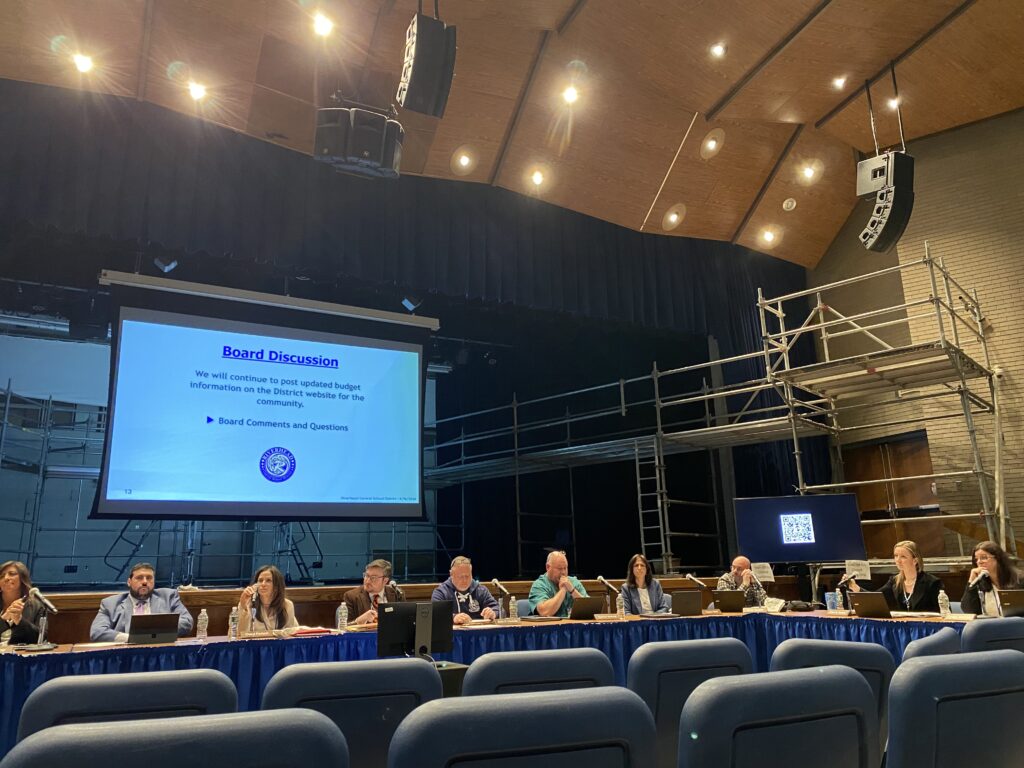Ethics Board issues report on politics and work in Town Hall

Should “policy-makers” in Town Hall be barred from serving on political committees, and vice versa?
The Riverhead Town Ethics Board thinks so, but a four-page ethics report discussed Thursday in Town Hall doesn’t exactly say what positions in town the board considers tasked with making policy.
The Ethics Board’s four-page report recommends the town ethics code “be revised such that political office is not limited to positions on an executive board (of a political party) but all political party positions, including committee positions.
“Also, the Town Board should prohibit officers, elected or appointed, and employees who hold policy-making positions from serving as a political party official or committee member of a local, county, or state political party.”
But the report didn’t specify which positions are “policy making,” and left that decision to the Town Board.
See the full report below.
“You know what’s funny?” Supervisor Sean Walter asked Donna Barnard, a retired teacher and Ethics Board chairwoman, during the Town Board work session. “We punted it to you, and I’m sensing” the board punted it right back.
Mr. Walter had proposed in July banning political party leaders from holding elected office in the town, but the Town Board eventually decided to send the issue to the Ethics Board for a recommendation.
The issue — which some felt was aimed at Mason Haas, an elected town assessor who at the time was vice chairman of the Riverhead Republican Committee, and is now chairman — didn’t appear to have majority support on the all-Republican board.
The Ethics Board report, which was presented by Ms. Barnard and deputy town attorney Ann Marie Prudenti, who advises the Ethics Board, compared ethics codes from other towns, particularly Brookhaven and Southampton, as well as state laws, to see how the issue is handled elsewhere.
On the issue of what constitutes political activity, the other codes the ethics board looked at were similar. But on the issue of who is considered a “policy maker,” there was no clear definition elsewhere, Ms. Prudenti said.
The Riverhead Town ethics code currently prohibits members of the Planning Board, Zoning Board of Appeals, Ethics Board and Board of Assessment Review from holding leadership positions in political committees, such as chairman, vice chairman, secretary or treasurer.
It doesn’t apply to political committee members, and it doesn’t extend the prohibition to elected officials.
Southold Town prohibits elected officials and the holders of some appointed positions from serving on political committees, the ethics board report states.
Southampton prohibits the holders of some appointed positions from being in political party leadership positions, though Town Board members there can still serve as party leaders.
Brookhaven prohibits elected officials from being in political party executive committees, such as chairman, vice chairman, etc, according to the report.
Mr. Walter suggested the town expand its ethics code to include others, such as Town Board members, although he felt prohibitions should only apply to executive board members of political parties, and not all political committee members.
“So a Town Board member should be prohibited from sitting on a (political party) executive committee?” Mr. Walter asked Ms. Barnard.
“That would be your determination,” she responded.
“You’re good at this,” Mr. Walter said.
“We don’t make policy. You do,” said Ms. Barnard, adding that the Town Board would be more familiar with what each employees specific duties are and which employees are policy makers.
She said part of the ethics board discussion centered on determining which town officials make decisions that effect the town as a whole.
“Everyone on some level, even rank-and-file civil service, make policy within their own departments as to how they are going to handle things,” Ms. Walter said.
“But we have the authority to etch it in stone,” Councilman Jim Wooten said.
“It is a punt back to us but it tells us what we should be looking to do,” Mr. Wooten said of the ethics board report.








